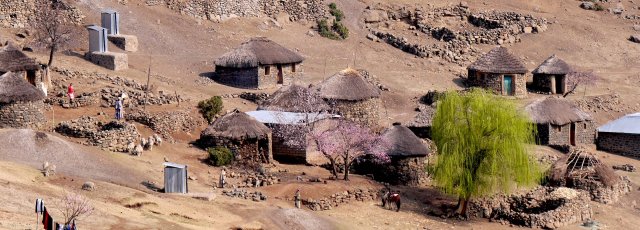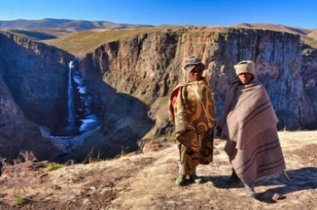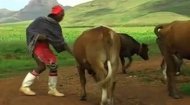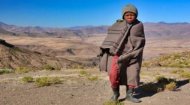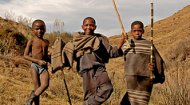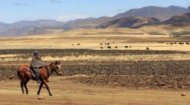|
Such droughts have decimated farm crops and many have abandoned the land, not just because of uncertainty as to whether crops will actually end up growing but also due to a shortage of manpower as AIDS sweeps across the kingdom. This increasing dearth of home grown crops is forcing prices to rise as the population not have to rely on expensive imports with Lesotho currently importing 65% percent of its annual maize needs and 80% of its annual wheat needs. The World Food Program estimates that 30% of the total population is now vulnerable to food insecurity. As such, many go hungry with such prices forcing the provision of food out of their reach; children attend school under nourished and unable to concentrate and are further exhausted on returning from the local walk home from school by replenishing water supplies as part of their household chores. It is estimated that about 40% of children in Lesotho under the age of five are stunted.
Life in Lesotho is about building and maintaining the rural homestead and the perpetuation of traditional Lesotho institutions. Its culture is also heavily influenced by its history of resistance including the 'successful' Gun War, Zulu attacks and Boer transgressions, and the role of the Sotho people in developing South Africa not just as a nation but in educational and religious terms as well. Authors and composers such as Thomas Mofolo (who wrote the popular novel 'Chaka') and Joshua Pulumo Mohapeloa are also celebrated in Lesotho culture. The two most significant dates in Lesotho culture are independence day (4th October) and Moshoeshoe's Day (12th March.) The latter a time for traditional dances, speeches and ceremonies, whilst the former focuses on celebrating children's achievements through sport and singing competitions. Handmade musical instruments such as drums, stringed instruments, whistles and rattles accompany story tellers and dancers who embrace their audience as literature, dance and music fuse during the retelling of ancient folktales. |
